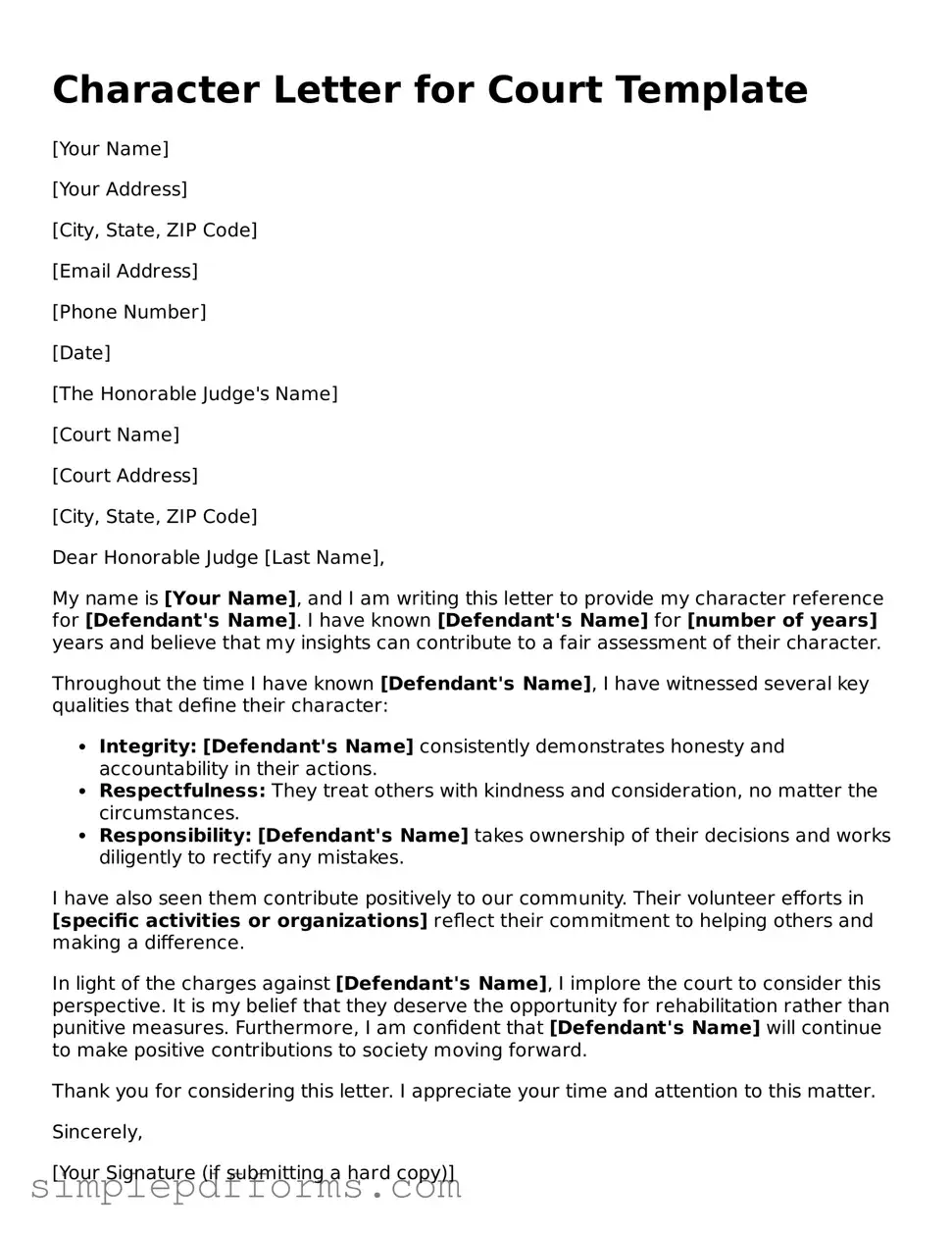Free Character Letter for Court Form
The Character Letter for Court is a written statement that individuals provide to express their observations and opinions about a person's character, often in the context of legal proceedings. This letter serves as a valuable tool for judges, offering insights into the individual's behavior, values, and community ties. By presenting a personal perspective, the letter can influence the court's understanding and decision-making regarding the case at hand.
Open Character Letter for Court Editor Now

Free Character Letter for Court Form
Open Character Letter for Court Editor Now

Open Character Letter for Court Editor Now
or
Get Character Letter for Court PDF Form
Your form is waiting for completion
Complete Character Letter for Court online in minutes with ease.